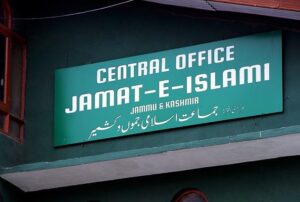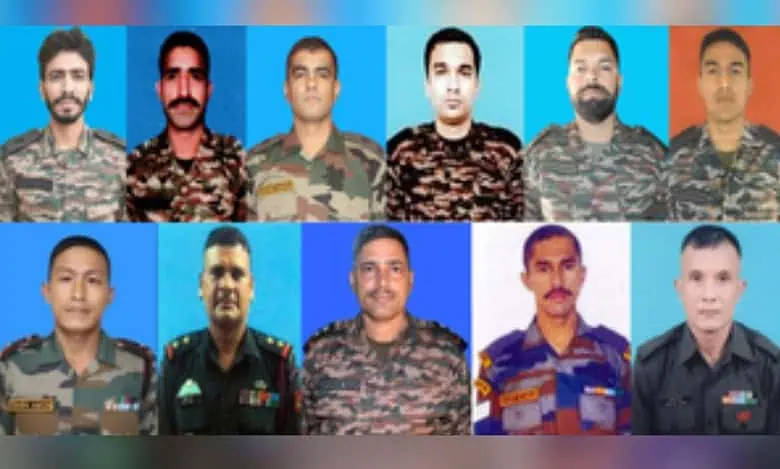
Delhi HC Confirms Jamaat e Islami Ban
Delhi HC Upholds Ban on Jamaat-e-Islami J&K
The Delhi High Court tribunal has confirmed the ban on Jamaat-e-Islami Jammu and Kashmir (JeI J&K), citing its alleged involvement in activities that threaten internal security and public order. The group was declared an unlawful association under the Unlawful Activities (Prevention) Act (UAPA) 1967, for a period of five years. The decision reinforces the government’s stance on groups suspected of supporting militancy and separatism in Jammu and Kashmir.

Background on the Ban
In February 2024, the Union Home Ministry extended the ban on Jamaat-e-Islami Jammu & Kashmir for five more years. The ministry cited 47 cases registered against the group, many of which involved funding for violent and separatist activities. These cases included National Investigation Agency (NIA) charges related to the collection of funds and the promotion of secessionist movements.
The ministry alleged that the group’s funds were channeled to active cadres of Hizb-ul-Mujahideen, Lashkar-e-Taiba, and other terrorist organizations. These funds were reportedly used to organize violent protests, create public unrest, and spread communal disharmony in Jammu and Kashmir and other parts of India. The Ministry of Home Affairs highlighted how these activities posed a threat to the country’s unity and territorial integrity.
Connection with Militant Groups
The government presented evidence to the tribunal, demonstrating that Jamaat-e-Islami J&K had close ties with militant outfits and actively supported extremism. It was argued that the group had consistently backed secessionist agendas, furthering the cause of terrorist organizations seeking to sever Jammu and Kashmir from the Union of India. The Home Ministry emphasized that JeI J&K played a role in anti-national activities intended to disrupt the territorial integrity of the country.
Among the cases presented was an NIA investigation into Ameer Mohammed Shamsi, the chief executive of Al-Huda Educational Trust (AHET). Shamsi and other members of the JeI allegedly continued to receive funds through AHET in Rajouri, even after the ban was first imposed in February 2019. AHET was said to be formed by top leadership figures within JeI J&K to further their subversive goals.
Defense by Jamaat-e-Islami J&K
In response to the ban, Asad Ullah Mir, a member of Jamaat-e-Islami J&K, appeared before the tribunal, contesting the accusations. He argued that JeI J&K is a socio-religious organization with a written constitution committed to peaceful, democratic processes. Mir claimed the group had no links to militant outfits and opposed extremism in all forms.
According to Mir, the organization was established in 1953 to spread the teachings of Islam without discrimination based on sect, language, or nationality. He further highlighted the group’s participation in democratic processes, dating back to 1969 when JeI J&K took part in municipal and panchayat elections. In 1971, the organization contested the Lok Sabha elections, securing over one lakh votes. JeI J&K members were also elected to the Jammu and Kashmir Assembly in 1972 and 1987.
Allegations of Election Rigging in 1987
Mir further defended the organization, stating that the 1987 Jammu and Kashmir elections were widely rigged, which resulted in only two JeI J&K members being elected to the assembly. He argued that this rigging led to a misconception that the group supported militancy, which was used as a basis for the 1990 ban. According to Mir, the organization has always condemned violence and armed militancy, with its leaders speaking out against such actions during public meetings.
He pointed out that the rigging of the 1987 elections is a well-known fact, acknowledged by figures such as former Deputy Prime Minister L.K. Advani in his autobiography, My Country My Life. The group argued that the 1987 election malpractice was one of the main factors contributing to the false perception that JeI J&K supported militancy, which subsequently led to its designation as an unlawful association.
Tribunal’s Verdict
Despite the defense presented by JeI J&K, the Delhi High Court tribunal, led by Justice Navin Chawla, upheld the ban. The tribunal concluded that the evidence provided by the Home Ministry justified the decision to declare the group an unlawful association under Section 3(1) of the UAPA. Justice Chawla’s order stated that the organization’s actions posed a significant threat to national security, warranting its continued ban under UAPA provisions.
The tribunal’s decision, issued on October 10, 2024, effectively confirmed the government’s stance, asserting that JeI J&K’s activities were incompatible with the preservation of India’s territorial integrity and public order.
Disclaimer:
The information presented in this article is based on publicly available court rulings and official statements. All individuals and organizations mentioned are presumed innocent until proven guilty by a court of law.


